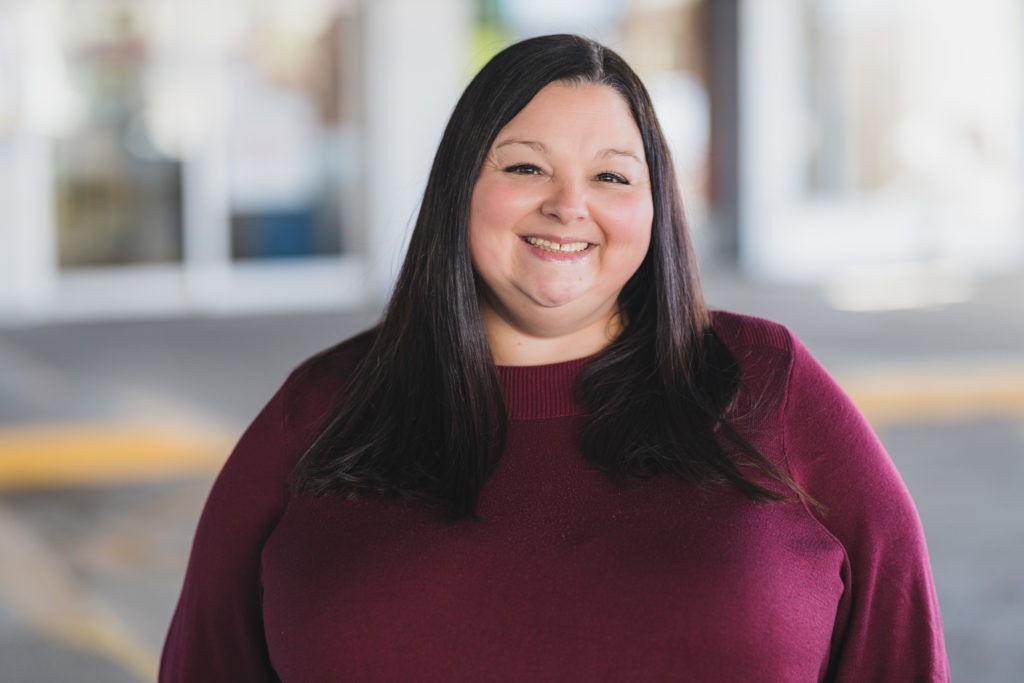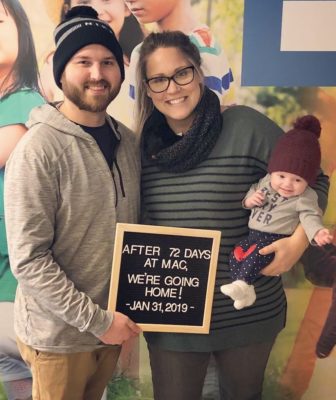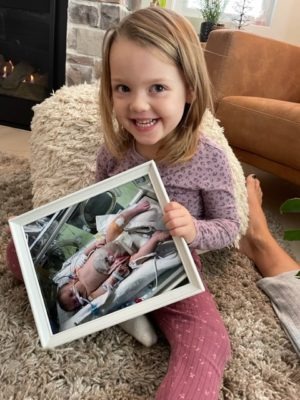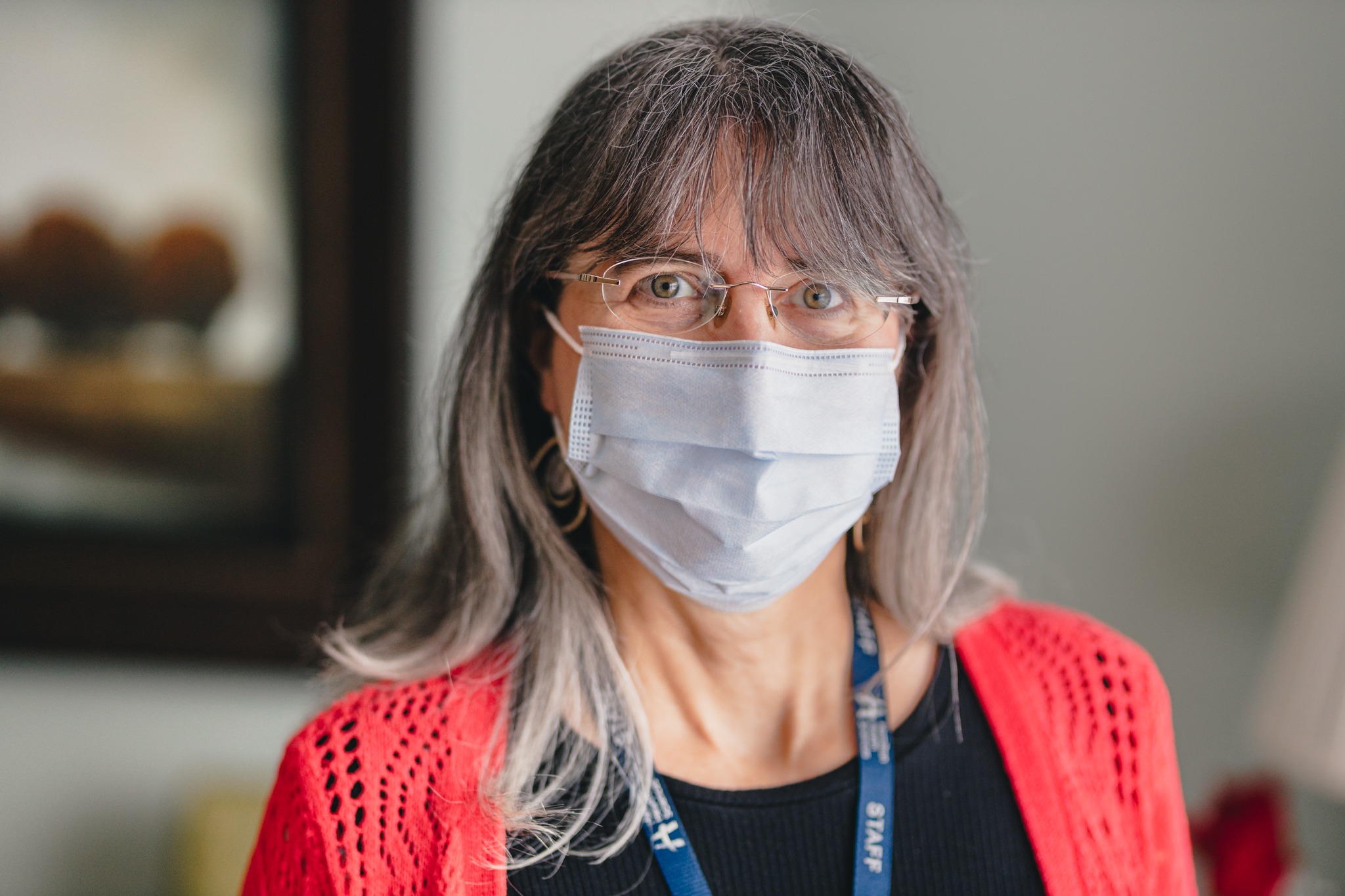
Spotlight shines during Social Work Week in PICU
March 6 to 12 is Social Work Week. As Hamilton Health Sciences (HHS) celebrates social workers across all hospitals, we recognize their roles in ensuring mental health access to patients, offering support, and actively being a voice for many families that come through our doors.
In honour of Social Work Week, we spoke with Terri Mirecki, a social worker at HHS’ McMaster Children’s Hospital (MCH) Pediatric Intensive Care Unit (PICU), along with a family she supported.
Passion for supporting resiliency
Mirecki has been working in the PICU for ten years, and always knew she wanted to be a social worker.
“I’ve always enjoyed working with people and have been interested in how people can be so resilient,” says Mirecki. “Growing up, I was able to see gaps within my community where people were in need and I always felt very passionate about equality among individuals.”
Before the PICU, Mirecki worked in the Emergency Department (ED) at the Hamilton General Hospital. During that time, Mirecki applied to cover a placement at MCH’s PICU, where she realized she loved to work with kids. When the opportunity came forward to work at the PICU full-time, Mirecki jumped at the chance.
Space to support
PICU social workers focus on providing support for children and their loved ones. They help families understand the PICU, along with handling discharge planning when it’s time to go home. Mirecki meets with families to offer support in times of crisis, helps find accommodations if needed, and provides supportive counselling.
When Ella Ukroenz was admitted to MCH’s ED at five weeks old, her family was terrified and struggling to understand the reasons behind their baby’s health issues.
“She guided us through a process that was foreign and unknown to us, a process that no parent should ever have to go through,” says Lindsay Karr, mother of Ella Ukroenz.
In November 2018, parents Lindsay Karr and Chris Ukroenz brought Ella to their local ED because she was vomiting and pale. Her condition quickly deteriorated, and code blues signalling a medical emergency were called on and off as doctors and nurses desperately tried to resuscitate her. From there Ella was transferred to MCH, where she was diagnosed with a large blood clot in her superior mesenteric vein and sepsis, leading to a massive bowel resection causing “short bowel syndrome”. These health issues led to a three-month stay in the PICU.
“Although many portions of that day are blurry and blocked out of memory, one memory that we hold on to is when we realized that we weren’t alone,” says Karr. “Sitting across from us on a chair was Terri. She reassured us that we were in good hands.”
Navigating challenges together
Mirecki assists in relaying messages to families from medical teams and helps put together a support plan in aiding families through a crisis.
She arranged an overnight room in the PICU so the family didn’t have to leave the hospital during those critical hours and organized accommodations for them at the Ronald McDonald House. Mirecki also helped facilitate family caregiver leave so the family could be with Ella, and continuously checked in with the family during their three-month stay at MCH to provide comfort during this hard time.

Baby Ella and her family celebrate their release after their three-month-long stay in the PICU.
“She guided us through a process that was foreign and unknown to us, a process that no parent should ever have to go through,” says Karr.
Many families dealing with crisis and trauma leverage social workers in times of need to open up and share with someone else.
“Terri has a wonderful, uplifting personality that always made us feel at ease when she walked into the room,” says Karr. “We knew that we could page her any time when we needed someone to talk to, when things weren’t going well, or when we had a question.”
Being in the moment
Mirecki says she’s “beyond grateful” to work with patients and families. “Seeing the strength people have during tough times is amazing to see and makes me love my job.”
“It can be a hard position sometimes,” says Mirecki. “Every moment is crucial. It’s important to be in the moment and allow parents a safe space to feel and process while offering the support needed.”

Ella in present day holding a photo of herself when she was a patient in the PICU back in 2018.
“Without Terri, we would have had to navigate many things on our own the day that Ella was brought in, which would not have been possible in the state that we were in,” says Karr.
Karr adds, “To be a social worker in an environment like a children’s hospital, where parents are facing the toughest, darkest, most horrific days of their lives, takes a very special kind of person. The intensity of what we witnessed during our time in the PICU was something we will never forget. For social workers to be surrounded by that kind of intensity, loss and grief, day in and day out, and still come to work with a positive attitude is remarkable.”
The family extends their gratitude to the health-care team at MCH and to Mirecki for her support during their difficult time.
“Without Terri, we would have had to navigate many things on our own the day that Ella was brought in, which would not have been possible in the state that we were in,” says Karr. “Having someone to lean on for support throughout our stay, as well as logistical matters was invaluable to us. We’re forever grateful for the staff who helped our daughter heal from what should have been a life-ending experience, and for Terri who helped us, her parents, heal from the trauma that came with it.”


